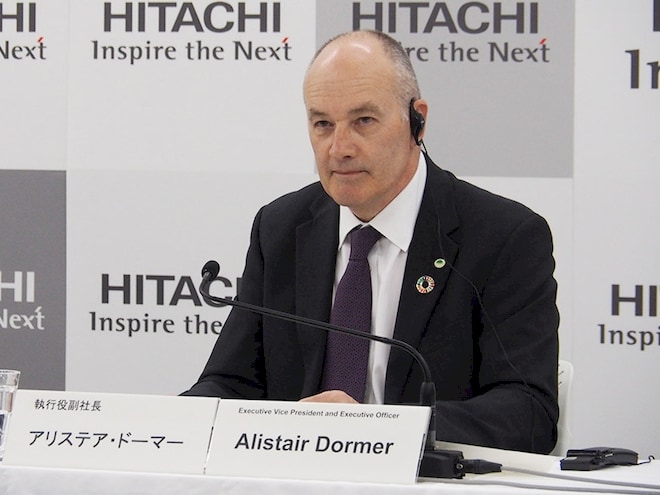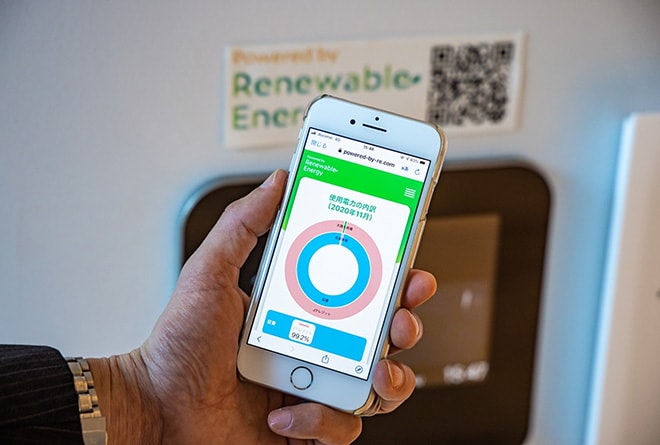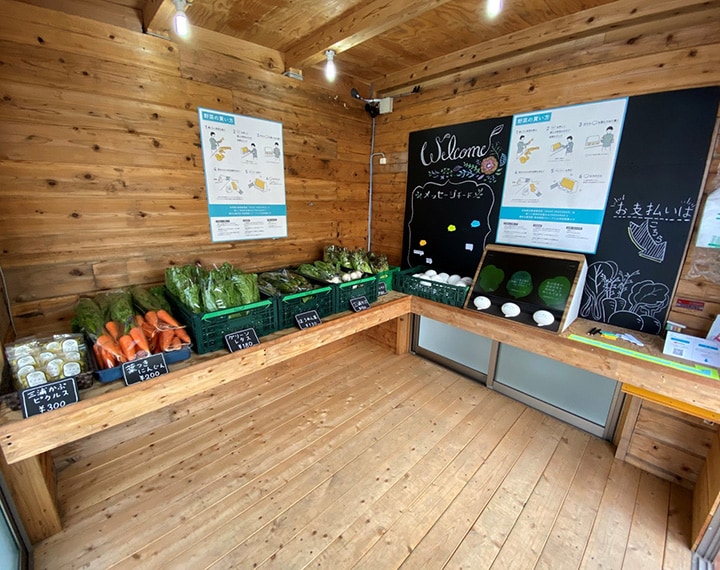Hitachi has unveiled the next generation of the OASIS™
Environmental Forum Hosts Discussion with Experts: What Type of Transition can Achieve a Sustainable Future?
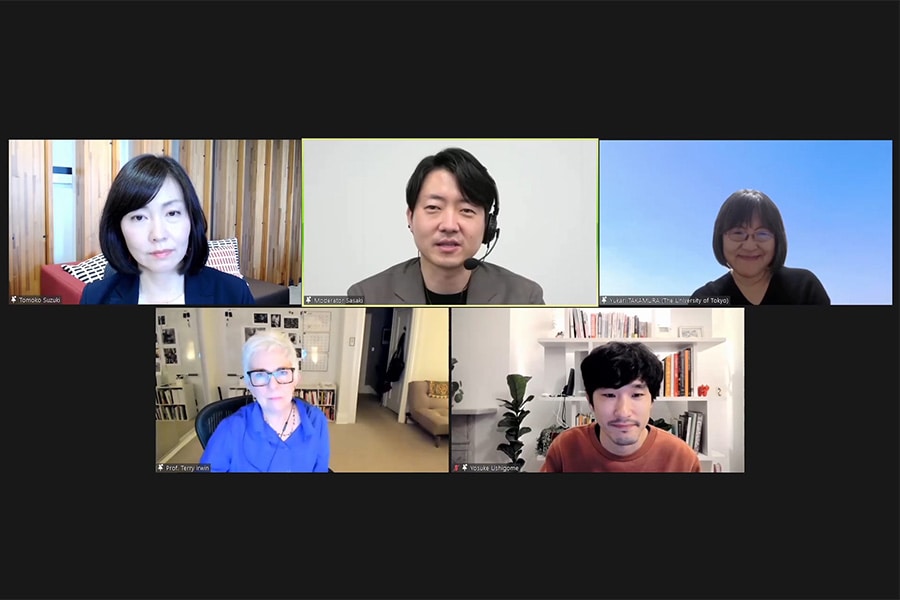
As we face a crisis in climate change and biodiversity, we are tasked with how to confront these problems and how to build a sustainable future. Seeking approaches, on June 22, 2021, Hitachi, Ltd. held an online environmental forum titled, "Transitions to Sustainable Futures" connecting experts residing in Japan, England, and the U.S.
The concept of “transition”
The discussion centered on the theme of “transition,” a word that refers to a change or shift from one state to another.
In advance of this forum, Hitachi, Ltd. partnered with design studio Takram to conduct a global survey on transitioning to a sustainable future that focused on nine areas of transition, including from fossil fuels to renewable energy and from a linear to a circular economy. Following the research of 126 individuals and international organizations, 12 experts on sustainability engaged in a dialogue to analyze the issues.
The survey report has been publicized online. Yosuke Ushigome of Takram London and who was in charge of the research, opened the forum with the following remarks on the meaning of “transition”:
"In today's world, both the public and private sectors are crying out about the necessity of creating a sustainable future, with the SDGs at the forefront. However, it is unlikely that everyone will have a common image regarding an issue that is the size and complexity of climate change. We therefore focused on the concept of 'transition' so as to move issues forward in a step-by-step, steady manner. We did this because specific initiatives and their processes, which can steadily drive change forward, are crucial toward achieving a society with a sustainable future."
Needed: Long-term goals and an integrated vision
The discussion proceeded based on Mr. Ushigome's statement. Also participating as guests were Yukari Takamura (professor at the University of Tokyo's Institute for Future Initiatives), Terry Irwin (director of the Transition Design Institute at Carnegie Mellon University), and Tomoko Suzuki (corporate chief researcher of the Hitachi, Ltd. Research & Development Group and Environment Project Leader).
With Hitachi, Ltd.'s Koji Sasaki, who was in charge of the survey, serving as moderator, a lively discussion ensued. The panelists also took questions from the audience.
The first presentation was made by Professor Takamura of the University of Tokyo, who has been tackling environmental problems from the perspective of the areas of her particular expertise—those of international and environmental law. Stressing that implementing a transition necessitates having a long-term strategy, she said:
"At the root of the problem of climate change is how people, businesses, national policies, and research have pursued short-term results. This is why I believe that transition must not be something that brings about abrupt and disruptive change. For society to change into the desired form, we need long-term goals and an integrated vision that are shared throughout the world."
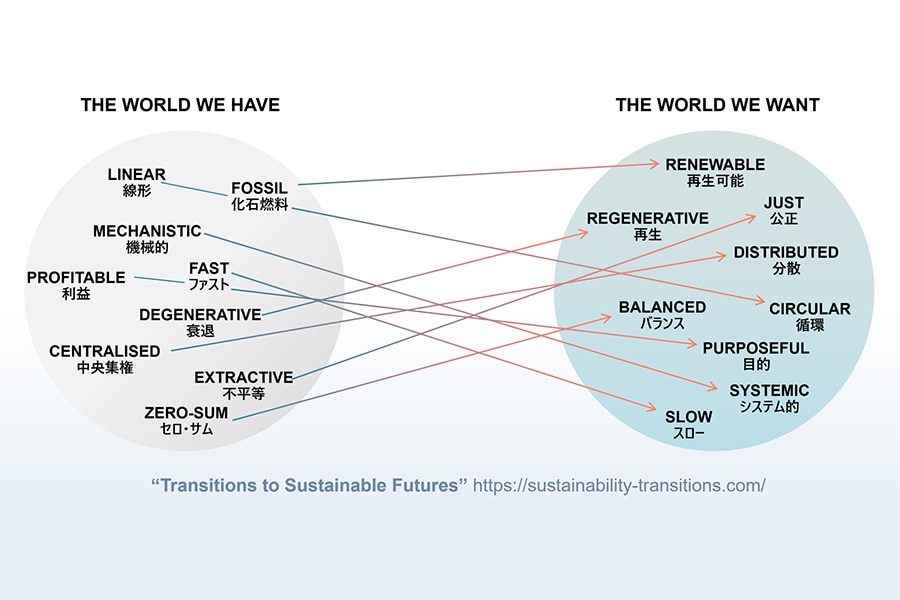
The non-rush to design transition
Ms. Irwin, professor of the design department at Carnegie Mellon University, pointed out that "In addition to the environmental problem, modern society is undergoing expansions of crime, poverty, the polarization of society, terrorism, an international pandemic, and other various challenges. It took a long time for these to become major problems, so there are no quick solutions. This is why allotting an equivalent amount of time for design transition will be important to solving these issues."
Professor Irwin added that "Future major changes to society always start with small changes in the present. Cultivating the seeds of the small changes that are occurring in our organizations and communities will put us on track for the transitioning of society as a whole. Rather than relying on scholars and experts in specific areas, transition design should be based on cooperation among stakeholders in all areas."
Since joining Hitachi, Ltd., Suzuki has been working on systematic research on the environment. After beginning her presentation with the words of Spanish philosopher José Ortega y Gasset: "I am I plus my surroundings," she spoke on how Hitachi will contribute to the building of a sustainable society through its businesses.
"Activities aimed at the desire to raise the quality of life of the world's peoples effectively have a negative impact on biodiversity and the environment and are in fact a continuing threat to quality of life. In light of this reality, Hitachi will, by 2050, reduce CO2 emissions by 80% compared to 2010 across its businesses and will continue with initiatives that contribute to the carbon neutrality of society as a whole by using the power of people and technology."
Companies with powerful technologies face a dilemma
Focusing on the fact that many in the forum audience had jobs related to the manufacturing industry, the moderator, Sasaki, asked the panelists what they thought would be required of the future industrial world.
Professor Takamura responded by saying that "At the same time that companies maximally reduce CO2 emissions with current technologies, it will be important for them to create new large-scale markets with a view toward transitioning to the desired world." Further elaborating, she said:
"Many Japanese companies possess powerful technologies. In his main work, The Innovator's Dilemma, economist Clayton Christensen warned that as organizations possess ever more powerful technologies they become hesitant to take on new markets, making them slow to respond. Regarding decarbonization, while expanding their sales channels and activities in world markets, it will be extremely important for Japanese companies to have strategies for responding to changes in dramatically changing societies."

Does “transition” lead to profit?
Among the questions from the audience was the frank comment that "when talking about transition or sustainability, someone always asks where the profit is, leaving me stuck for an answer." Professor Irwin said with a grin that this was the big 10 million dollar question and responded as follows:
"Companies always need profit to stay in business and to support the lives of employees. On the other hand, the ongoing issue of climate change is something that involves the lives of everyone that works at a company—their grandchildren included. This is why it is necessary to consider how much short-term profit to secure and, on top of this, how much to invest long term. It will be important to consider regional and global factors even if we have to put off the pursuit of short-term profit for a little while."
Expectations on young people just starting out
At the end of the forum, the panelists talked about prospects for the future. Professor Takamura spoke of her aspirations, saying that "I hope to deepen discussions on transition as a methodology that makes it possible for companies to change on their own initiative going forward in this changing world."
Professor Irwin said that "I think we should consider how to effect a smooth transition from the social, economic, and political paradigms that have continued up to now. We must create new paradigms for the people of the world to live as cosmopolitans while acknowledging cultural diversity."
After telling the story of how Namihei Odaira, the founder of Hitachi, established a school within Hitachi that produced a large number of people for other companies, Suzuki spoke on the importance of the spirit of altruism, which brings about long-term benefits to society instead of short-term advantages.
With this forum having served as a place to talk about the paradigm shift toward a sustainable future, Sasaki closed it with the following words:
"We will continue taking action to protect the Earth that is our home. The younger generation, which will begin such initiatives, are being born into this world as we speak. I feel that 'transition' will be a new and exciting challenge for the generation that will live on in the upcoming era."

